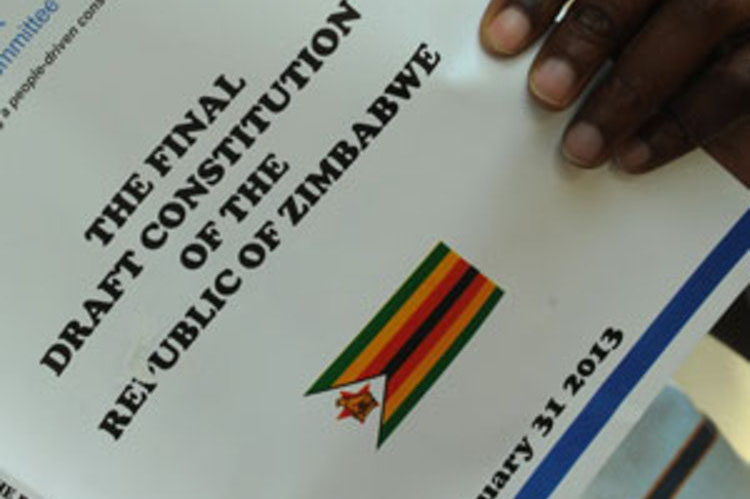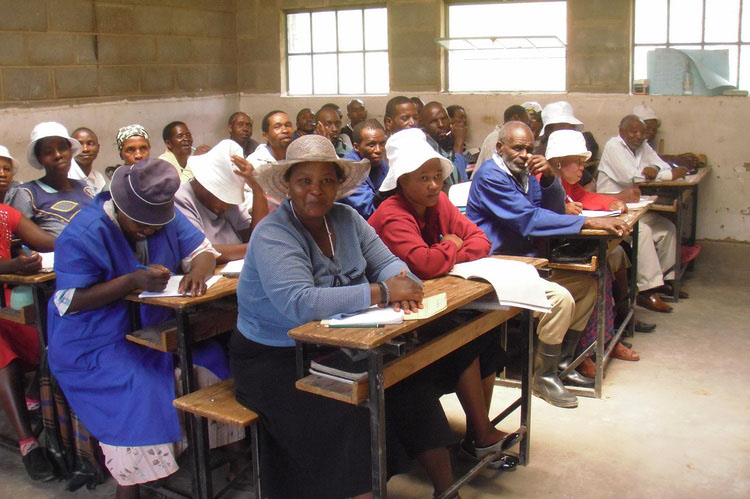Rights of women enshrined in constitution

In 2013, we went out in our numbers to vote in a referendum for the creation of a new constitution. This would be the first constitution made entirely for and by free Zimbabweans. The Lancaster House constitution, if we were to judge it solely by its name, left a lot to be desired especially pertaining to women’s rights.
Unlike our own Zimbabwean made constitution which has given women the wings that were clipped throughout history, the Lancaster House constitution would give a right with one hand and take with the other, the so called claw-back clauses.
What that means is that it allowed for gender equality but at the same time allowed for cultural and societal norms to supersede these rights of ‘equality’. At the end of the day, women had rights as long as these rights were in accordance with cultural practices. While this may not have been all the way bad, a lot of cultural practices came with high levels of discrimination against women.
The constitution is the supreme law of the land which means that any law inconsistent with it is invalid and I dare say illegal. It is binding on everyone i.e. the Government, individuals and institutions.
The constitution gives a guiding framework for all other laws and policies hence other laws should be aligned with the constitution. The effect of each word that is penned in this supreme law is that nobody is exempt from it.
That goes for every man who is marrying a child before she has reached the age of 18, for the parents consenting to that union and for the person forcing a girl to enter the employment market with no prospects of her ever benefiting from that employment and most importantly, without her consent.
Zimbabwe is founded on respect of values and principles that include recognition of gender equality. This provision recognises the rights of the marginalised groups, that is women, people living with disability, youth and children.
Women’s rights are also included in the national objectives which are important to guide the government in formulating and implementing laws and policies that will enhance and establish a just, free and democratic society.
Section 17 of the constitution mandates the Government to promote gender balance taking into cognisance full participation of women in political, social and economic spheres. The State has taken the first step in ensuring active participation by women in the political sphere by reserving 60 seats for women in Parliament.
The State has also established independent institutions that support constitutional democracy like the Gender Commission whose main mandate is monitoring gender equality issues and government must ensure that women are appointed to such commissions and can be chairpersons or deputies.
Section 56 provides for the right to personal security. Violence against women has always been outlawed but now the prohibition has been elevated to a constitutional Bill of Rights. The Government now has a greater responsibility to ensure that women are protected from violence through appropriate laws like the Domestic Violence Act and institutions like the Gender Commission.
This also means that women should be free from all forms of violence in both private and public sectors.
Women have also been afforded the right to make decisions concerning whether to have children or when to have children. Women can access and use contraceptives and family planning services without being required to seek permission from husbands, parents and guardians.
Women’s rights are also recognised in the work places. Women and men have equal rights with regards to pay for equal work. Gone are the days when men would get paid a higher amount than women for the same job performed. Women have the right to fully paid maternity leave for at least three months.
The constitution also provides for socio-economic rights. Every citizen has a right to basic education, health care food, water and marriage rights.
Section 75 provides that every citizen of Zimbabwe has a right to basic state funded education including adult education. The provision states that the state must take all practical measures to promote free basic education.
Most girls are pulled out of school because of lack of funding and boys are left in school. This provision ensures that girls do not drop out of school at an early age hence discouraging early childhood marriages which prevent girl children from developing careers.
The right to health has also been enshrined in the constitution. Again every citizen has the right to access to basic health care including reproductive health care services. However, these rights are fully recognised based on the availability of resources.
Marriage rights are also provided for in Section 78 of the constitution. The provision sets 18 years as the age of marriage. This provision discourages child marriages which had become rampant in Zimbabwe. It is now a criminal offence for anyone who is involved in marrying off young girls.
The Act which deals with criminal offences does not yet cater for child marriages as criminal offenses making it difficult for the police to deal with reports of child marriages.
While the constitution is the supreme law of the land, it provides a backbone upon which other laws rest. It is therefore vital to ensure that all Acts are amended to align with the pro-woman Constitution. Section 78 (1) also provides that no person may be compelled to enter into marriage against their will. Harmful cultural practices like nhaka and kuzvarira that discriminate against or cause harm to women are prohibited by this section.
Under the socio-economic rights, women can expect and hold government accountable for not taking measures to create conditions and improve their lives.
The Government is obliged to take measures which ensure the progressive realisation of rights and a gradual improvement in the lives of women in such areas as access to health care, education, housing and social security.
Section 80(2) provides that women now have the same rights as men regarding custody and guardianship of children. Women can now be guardians of their minor children unlike in the past where men were the only guardians. Women can now make important decisions for their children like signing a contract without necessarily having to consult the father.
All laws, customs, traditions and cultural practices that infringe the rights of women as spelt out in the constitution are void.
The Marriages Act which sets 16 years as the age a girl can be married with the consent of the parents and the Customary Marriages Act which does not specify the minimum age of marriage are infringements on women’s rights.
The two laws need to be aligned with the constitution. Other harmful cultural practices like kuroodza or ngozi infringe the rights of women.
The State has also established the constitutional court, which means that women can make applications to the constitutional court to declare certain laws unconstitutional.
This has been evidenced when the constitutional court ruled that marriage below the age of 18 years is illegal after two women, Loveness Madzuru and Ruvimbo Tsopodzi, who were married before the age of 18 years applied to the court to set 18 years as the minimum age of marriage.
Those in need of legal advice please get in touch with us at Zimbabwe Women lawyers Association – 17Fife Avenue, Harare -Tel: (04)708481 /706676 – Hotline: 0782 900 900/ 0776736873 – Toll free: 08080131.









Comments